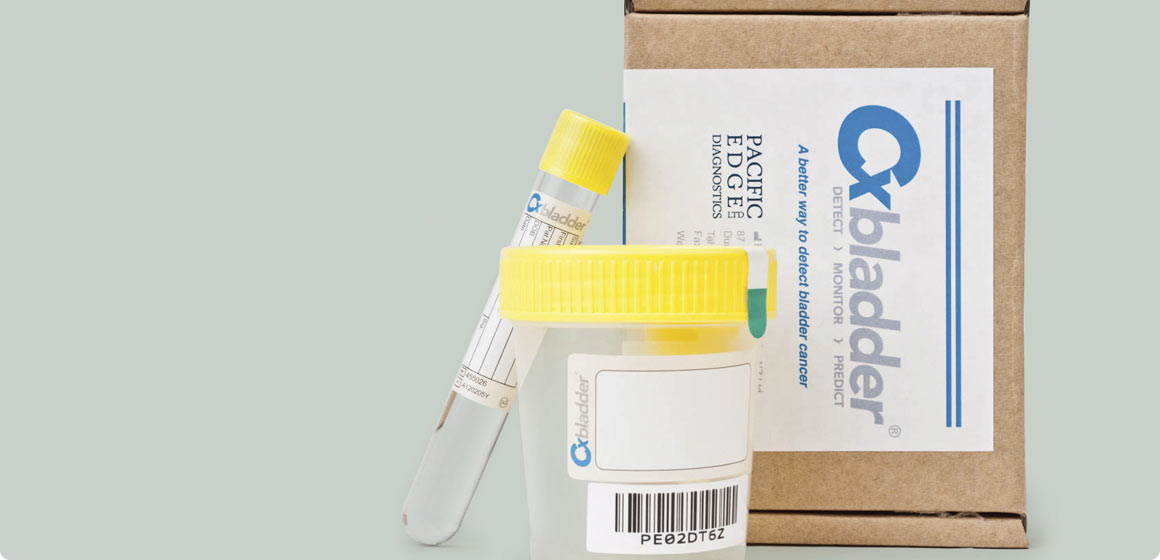 Tuesday 14 May 2013 11:44am
Tuesday 14 May 2013 11:44amPacific Edge is a biotechnology success story in a clinical field where there is high demand around the world: the early detection and management of cancer.
Formed in 2001 and publicly listed in 2002, Pacific Edge launched its first product, Cxbladder, a non-invasive diagnostic test for bladder cancer, in 2010. The company has a suite of other products at various stages of the development pipeline that will follow Cxbladder to market. These include diagnostic tools that will detect gastric cancer and prognostic tools to help determine the stage of development of colorectal cancer and melanoma.
Cxbladder works by accurately detecting, in a small urine sample, biomarkers that indicate the presence of bladder cancer, enabling clinicians to diagnose bladder cancer non-invasively. Currently available in New Zealand and Australia, Cxbladder is shortly to be launched into Spain and the US market.
Pacific Edge CEO David Darling explains the company's success by telling the story of its commitment to science, intellectual property protection and a commercial focus.
The science behind product development has been robust and world-class. Associate Professor Parry Guilford, principal investigator at the University of Otago's Cancer Genetics Laboratory and an expert in cancer gene expression, has been chief scientific officer and research director of the company since its inception, while the laboratory's director, Professor Anthony Reeve, chaired the company's research advisory board until his retirement earlier in 2012.
Cxbladder, Pacific Edge's first product, is a non-invasive diagnostic test for bladder cancer and will soon be launched into the US market.
The science itself was made possible by the sequencing of the human genome, undertaken by collaborators worldwide in 2000. Among its many contributions to biomedical science, this landmark discovery suggested the possibility of the early detection of cancer by genetic means – if the genes expressed in particular cancers could be identified and a method of detecting their presence developed.
With this aim in mind, Pacific Edge first focused on building a gene expression database for the five cancers it had chosen to target: bladder, colorectal, endometrial and gastric cancer, and melanoma.
This three-year project involved comparing the genes from matching samples of normal tissue and cancer tissue taken from cancer patients, in order to identify the genetic markers that signalled the presence of cancer.
“We started looking through 30,000 genes for those differentially expressed during the onset and development of cancers,” explains Darling, “and arrived at a short list of genes expressed in these cancers.”
At this point, the company began to file for international patents for the information it had invested in, signalling the active approach to managing and protecting its IP that has proven to be another of the company's hallmarks. Today, the company invests up to half-a-million dollars a year in managing its intellectual property, including the strict licensing regulations it enforces with carefully selected partners in various territories.
The first step on the road to commercialisation was Pacific Edge's drive to understand the clinical needs of potential customers.
Darling explains: “We went to cancer clinicians and asked them, 'If we were to do one thing for you that would impact on the way you conduct your clinical activities that would improve patient outcome, what would it be?' Each of the clinicians in the five cancers we embarked on nominated a 'potential tool' they'd like to see available. That information framed up the concepts we then focused on developing.”
The rest is – at the very least – life-saving history in the making. Early detection of cancer enables earlier treatment, which is usually more effective, leading to significantly better patient outcomes. Pacific Edge's testing technology is also non-invasive, relatively low cost and has high accuracy – all significant gains in the search for better cancer diagnosis and treatments.